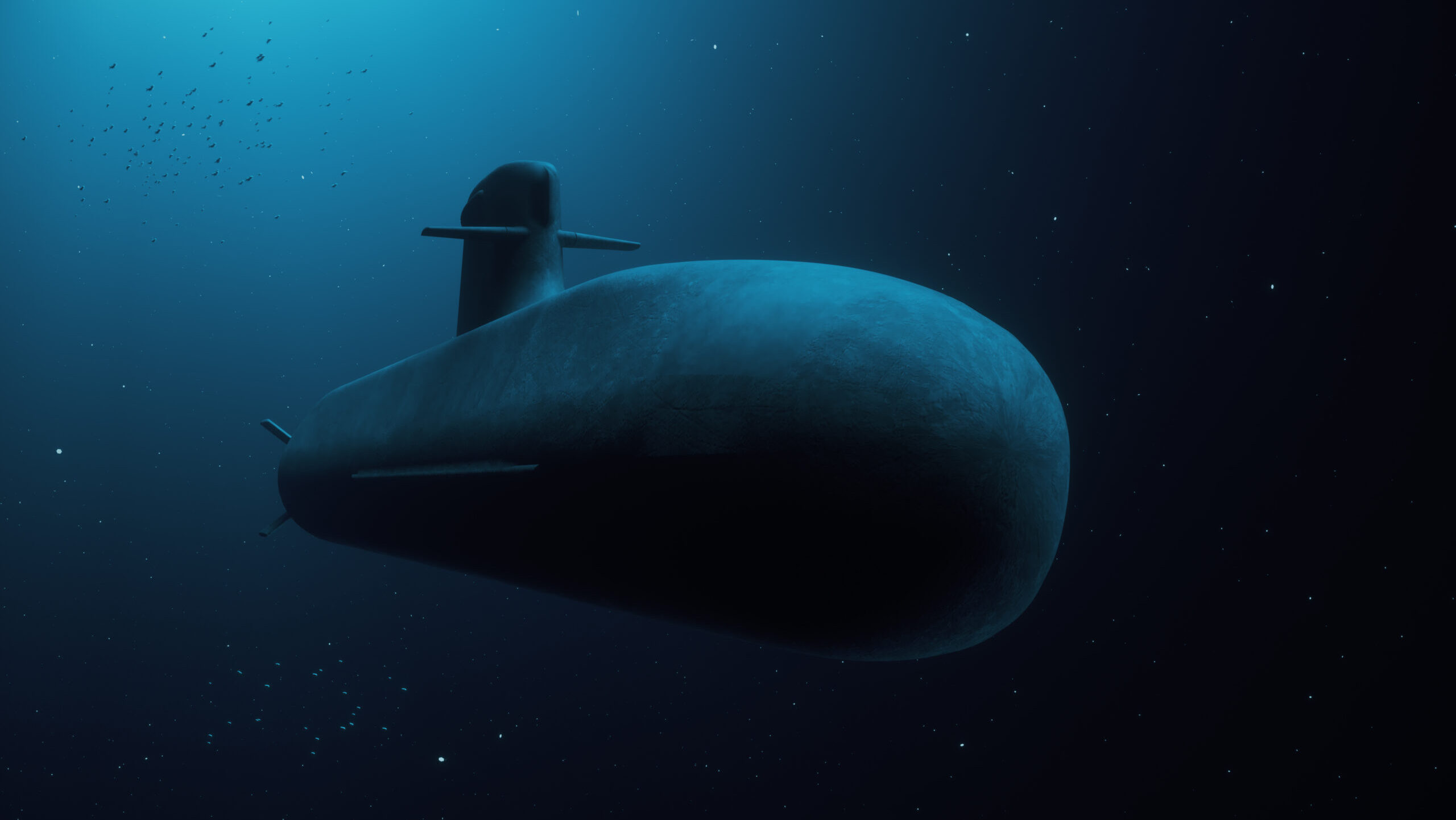
Concept art of a Barracuda-class submarine by France’s Naval Group. (Naval Group)
PARIS — France’s Naval Group and its Dutch partner, Royal IHC, have been selected by the outgoing Dutch government to build four Barracuda-class diesel-electric submarines to replace the Royal Netherland Navy’s three aging Walrus-class boats, according to statements from Naval Group and the Dutch and French governments.
A precise cost for the four submarines, which will be named Orka, Zwaaardvis (swordfish), Barracuda and Tijgerhaai (tiger shark) and be built in Cherbourg, France, was not provided, but the Ministry of Defense told parliamentarians in a letter that the “investment budget,” which covers construction and other costs up to 2039, is €5.6 billion ($6.1 billion).
The Royal Netherlands Navy Barracudas will come in a 3,000 tonne (3,307 ton) version compared to the 4,500 tonne (4,960 ton) Barracuda-class of the French Navy whose first boat, the Suffren, has been operational since June 2022. The Dutch subs will carry US-made Tomahawk missiles.
The first two boats for the Netherlands should be operational between 2034 and 2037, with their Tomahawks providing a “niche capability within NATO and the EU,” a spokesperson for Dutch State Secretary of Defense Christophe Van der Maat told Breaking Defense in a statement last August.
“This award decision concludes a stringent selection process and opens a period of exclusive discussions leading to the signature of a contract,” Naval Group said in its announcement Friday.
Chairman and CEO Pierre Éric Pommellet said Naval Group is “extremely honored to have been selected by the Netherlands following a hard competition and to be involved in this project of strategic importance. The Barracuda family submarine will provide the Royal Netherlands Navy with extended leading-edge capabilities satisfying the requirements set by the Netherlands Ministry of Defense.”
Naval Group was in competition with the Dutch-Swedish consortium Damen-Saab and Germany’s Thyssenkrupp Marine Systems, who all answered the Dutch governments call for tender in 2017. The initial estimated investment at the time was €2.5 billion ($2.73 billion), Dutch daily De Telegraaf reported.
According to the English-language Dutch media, NL Times, Van der Maat said the French company made the best offer. “That means they will build the best boat for the best price,” he is quoted as saying. “In addition, a large role has been put aside for our own industry […] pertaining to the construction and the maintenance.”
Naval Group specified in its statement that “an ambitious industrial cooperation plan […] will involve Naval Group’s existing network of Dutch partners on key systems and components, ensuring that the Netherlands ecosystem develops and retains expertise and involvement over the submarine life cycle.”
A Dutch subsidiary of France’s Naval Group, called Naval Group Netherlands, was formed in 2017 to strengthen collaboration with its 50 or so Dutch partners, some of which the French group has been working with since the mid-1970s.
The statement adds that “we intend to grow that cooperation further and we thank all of our Dutch partners for their support and dedication during the selection phase.”
The decision to award the Replacement Netherlands Submarine Capability Program (RNSCP) to Naval Group has been greeted with considerable dismay by the Dutch maritime industry and some politicians who fear that the “Dutch maritime industry will be left destitute,” De Telegraaf reported.
But Economics Affairs Minister Monique “Micky” Adriaansens stressed that Dutch shipyards would be involved. She explained in a statement that while “our shipyards can build excellent surface ships themselves, […] unfortunately we have not had any Dutch navy yards that can design and build submarines themselves for more than 25 years.” She said that local industries would greatly benefit from the knowledge they would acquire working on the submarine project, and this alone was worth “billions.”












